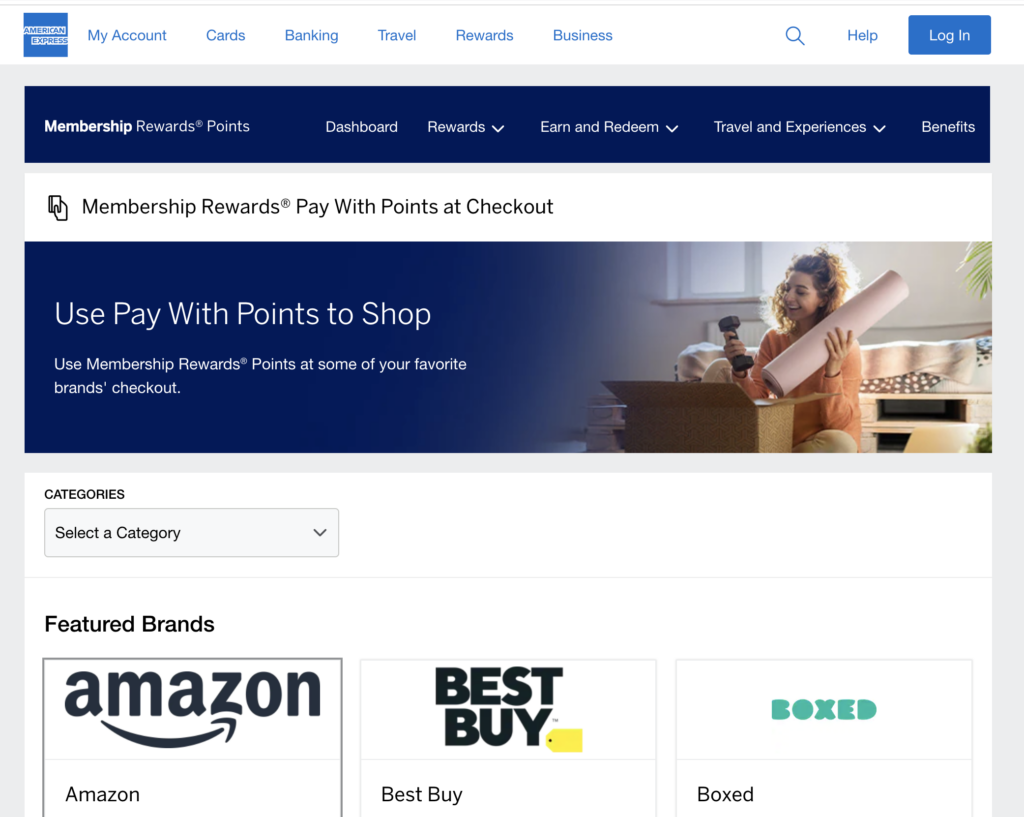Wondering what Web3 really means for the future of business? Want a peek into the future opportunities waiting for you?
In this article, you’ll discover the positive impact that Web3 will have on how we interact with customers and how it could change your business.

Web3 Is Poised to Change the World
To understand the opportunities of Web3, it's helpful to look at the past.
If you think about the personal computer back in 1980, it's really the great-grandparent of today's iPhone. These two devices, 40 years apart, have almost the exact same features and functions. They both can create a database, do word processing, and grant us access to email and chatrooms. Even location services, which were configured and tracked differently using IP addresses and phone numbers, existed back then. Now they exist in the palms of our hands.
As the computer of 1980 evolved, the whole world evolved with it. Everything we see around us computationally is based on the creativity of each one of us being democratically introduced to the technology. You can make a computer do anything you want it to do as long as the technology is available.
Fast-forward to today. The power and promise of Web3 is the democratization of value exchange at the same level that we democratized information exchange in 1980 with the advent of personal computers.
We all grew up in a world where our finances have been controlled by centralized authorities. The Federal Bank of the United States sets monetary policies, fractional lenders supply the money and make the capital available for us to borrow, and the rule of law governs it all. Based on this framework, we have assumptions about how business deals will be made and value will be exchanged.
But Web3 is starting to challenge these assumptions.
When you hear about Web3 and cryptocurrencies, NFTs, smart contracts, and so on, you're probably wondering if all businesses need to embrace these. Think about it this way: does every business need to have a website? No, but every business needs a way to communicate. Does everybody need a widget or an app? Absolutely not. There are different use cases for different technologies, services, and business models. But everyone exchanges value every day.
Up until now, we haven't had a lot of say about how that exchange happens. But as we evolve further into Web3, we'll reach a point where we do have a say in how we exchange that value. We'll be able to impose our creativity on finance in a way that has never been possible before. And it's the technology that makes it available to everyone.
What Is the Democratization of the Value of Exchange?
Today, the U.S. dollar can be used anywhere in the world. If you're traveling in Europe and you take a $20 bill out of your wallet to pay for something, merchants will accept that $20 bill as being worth US$20. It's a belief and a piece of paper—that's the value exchange.
So what determines that value? Some might say it's the gross domestic product, rule of law, military might, or a combination thereof. What they call the full faith and credit of the United States government is what makes a U.S. dollar worth a dollar.
But there are other ways to exchange value; we've just never been able to tokenize it.
For example, if you play videogames, you can use in-game currency to buy items and gain extra lives for your character. Sometimes you can actually use real money to make in-game purchases.
Get World-Class Marketing Training — All Year Long!
Are you facing doubt, uncertainty, or overwhelm? The Social Media Marketing Society can help.
Each month, you’ll receive training from trusted marketing experts, covering everything from AI to organic social marketing. When you join, you’ll also get immediate access to:
- A library of 100+ marketing trainings
- A community of like-minded marketers
- Monthly online community meetups
- Relevant news and trends updates
There's also the concept of loyalty points. When you travel with an airline enough times or stay overnight in enough hotels, companies will give you loyalty points. There are also exchanges where you can use those loyalty points. If you have American Express loyalty points, Amazon will let you spend them there.

So we have experience with tokens that have value that isn't a U.S. dollar, although it does relate back to it. But what if it didn't have to?
Imagine a composer who wants to hire a bass player, guitarist, keyboard player, background singers, and an audio engineer, and they're willing to accept a coin issued by a creator named Michael. This coin is commonly accepted as payment between musicians but it's not accepted as payment for a cheeseburger at a fast-food restaurant.
Now suppose sometime in the future, a fast-food restaurant analyzes Michaelcoin and decides it's a well-established value exchange. At that point, they might decide that Michaelcoin could be used to buy a combo meal.
In the Web3 space, we can expect new stores of value to be created, new money to spend it in, and new ways to account for it. This is the democratization of value exchange.
It really comes down to three components of money: the storage, exchange, and accounting of value. Once you put those three things together, you can create your own coins or tokens to represent that value. As more people and businesses begin to do this, endless derivative products will also come about.
How Web3 and a Democratized Value Exchange Will Affect Businesses Moving Forward
In terms of advertising and marketing, the ramifications of the technological advancements in Web3 are going to be significant.
Think about how the emergence of new technology has affected how people consume media today versus 10 years ago. With the advent of DVRs and streaming services, people no longer watch broadcast television in a linear fashion. It used to be that advertisers and marketers would strategically broadcast their commercials to the masses with specific calls to action. But things are different now because people aren't watching commercials.

Internet ads are changing, too. With people opting out of having their data tracked, businesses can no longer retarget them in the same way they could just a few years ago.
With each change, businesses are forced to try new things and evolve their strategies. Similarly, the developments coming from crypto and Web3 will require some rethinking.
There's an entire world of engage to earn, watch to earn, listen to earn, and play to earn crypto-based or Web3–based business models that we've never seen before. The groundwork has already been laid to allow both users and creators to share in the value they create together. People who are part of a community can be rewarded for being part of that community. You can embrace your community in a direct way that's monetizable for them and you.
There are infinite ways that the future could unfold but there are some probable projections. What will those look like? Will we see more generative NFT projects? Yes. Will the majority of those projects fail? Yes, just as the majority of businesses from 1980 to today have failed.

Discover Proven Marketing Strategies and Tips
Want to go even deeper with your marketing? Check out the Social Media Marketing Podcast! Publishing weekly since 2012, the Social Media Marketing Podcast helps you navigate the constantly changing marketing jungle, with expert interviews from marketing pros.
But don’t let the name fool you. This show is about a lot more than just social media marketing. With over 600 episodes and millions of downloads each year, this show has been a trusted source for marketers for well over a decade.
Will we see Microsoft get into this world with the Xbox? Are they going to go deep into game tokens and bridge the gap between the blockchain and their hundreds of super-popular console- and PC-based videogames? That's a possibility.
There will be incremental advancements in the Web3 space that won't feel game-changing to us but will affect consumer behavior.
Think about when a new iPhone model comes out. The updates often are small—a slightly better screen, a bit longer battery life, and a little better processor. Each update on its own is very minor; however, collectively they can empower consumers to change their behavior.
If all of a sudden an iPhone could add a bokeh effect to video, what would that do to the mirrorless camera business? People wouldn't need to buy a separate lens for their expensive camera to blur their background because their iPhone could do that now for free. Incremental changes like that have the power to change the way consumers spend their money.
In decentralized finance, if you look at incremental innovation in blockchain technologies like Cardano, Solana, Polygon, and Ethereum, individually these changes may mean nothing. You need to look at these changes in their totality and then decide what they mean for your business. How will the environment change in a way that you can take advantage of? How will your business profit and prosper from these incremental changes? And how will these incremental changes have an impact?
How Businesses Might Transition Into Web3
Decentralization is one of the big narratives around Web3 and it stems from the idea that big tech—Facebook, Google, Netflix—are centralized authorities or walled gardens. When you go to any platform owned by Meta, for example, they own 100% of the data you type or tap. They build wealth based on the data that we all create but they don't share anything they don't have to share.
If you think about Web3 as being based on decentralized toolkits, a social platform in that space might be peer to peer, rather than a centralized authority. It might also be decentralized autonomous organization (DAO)–governed, meaning people get to vote. Ultimately, the simplest way to describe it is that both users and creators would get to share in the value they create.
While this idea of decentralization is all over Web3, it's important to remember that many of the things we care about now are centralized and we're fine with that.
For example, the NBA is the central authority for professional basketball and most fans would see no need for decentralization of basketball. Dapper Labs created Top Shot for the NBA, a fully centralized NFT platform. If you're a basketball fan and hold one of those NFTs, you'd have all of the benefits of being inside a centralized world created for you.

Of course, it's possible that there will be new models in Web3 that are fully decentralized from the get-go, especially in the areas of media and entertainment. When you talk about financial products where you're doing fractional lending, making merchant credit available, building securitized assets, and/or building financial products around assets that can be securitized, a real Web3 environment that's fully decentralized starts to make sense.
But not every business model requires complete decentralization. A better way to think about a business model with Web3 is to ask what part will be centralized and what part will be decentralized?
When Shelly works with new clients in the Web3 space, he always asks them, “Explain to me why we need to use blockchain for your project and why is it a better solution than a well-structured database with a secure password?” If they have a good answer to that question, then a decentralized finance project or a Web3 project may make sense.
Shelly Palmer is a Web3 business advisor and founder of the Palmer Group, a consultancy that helps businesses embrace Web3 tech. He's host of the Techstream podcast and a professor of Advanced Media in Residence at the Newhouse School of Public Communications at Syracuse University. He's also the author of Blockchain – Cryptocurrency, NFTs & Smart Contracts: An executive guide to the world of decentralized finance. Find Shelly at @shellypalmer on Twitter and Discord and learn more about him on his website ShellyPalmer.com.
Other Notes From This Episode
- Download the free resources Shelly mentioned at ShellyPalmer.com/blockchain and learn more about Metacademy.
- Check out NBA Top Shot NFTs, Solana, Cardano, Polygon, Ethereum, CoinDesk, Cointelegraph, and Decrypt.
- Connect with Michael Stelzner at @Stelzner on Instagram.
- Watch the interviews on the Crypto Business YouTube channel.
Listen to the Podcast Now
This article is sourced from the Crypto Business podcast. Listen or subscribe below.
Where to subscribe: Apple Podcast | Google Podcasts | Spotify | Amazon Music | RSS
✋🏽 If you enjoyed this episode of the Crypto Business podcast, please head over to Apple Podcasts, leave a rating, write a review, and subscribe.
Disclaimer: The information provided on this website is provided solely for educational purposes and does not constitute any advice, including but not limited to, investment advice, trading advice or financial advice, and you should not treat any of the website's content as such. Social Media Examiner recommends that you independently research any information contained on this Website and that you speak with an investment professional before making any decision to purchase, trade, hold or sell cryptocurrency. Nothing herein should be treated as a recommendation to buy, sell or hold cryptocurrency. Social Media Examiner cannot guarantee the accuracy of any information listed on the website and is not responsible for any missing or wrong information. All information is provided as is and should be used at your own risk. Social Media Examiner disclaims all responsibility and liability for your use of any information found on the website.
Attention Agency Owners, Brand Marketers, and Consultants

Introducing the Marketing Agency Show–our newest podcast designed to explore the struggles of agency marketers.
Join show host and agency owner, Brooke Sellas, as she interviews agency marketers and digs deep into their biggest challenges. Explore topics like navigating rough economic times, leveraging AI, service diversification, client acquisition, and much more.
Just pull up your favorite podcast app, search for Marketing Agency Show and start listening. Or click the button below for more information.

